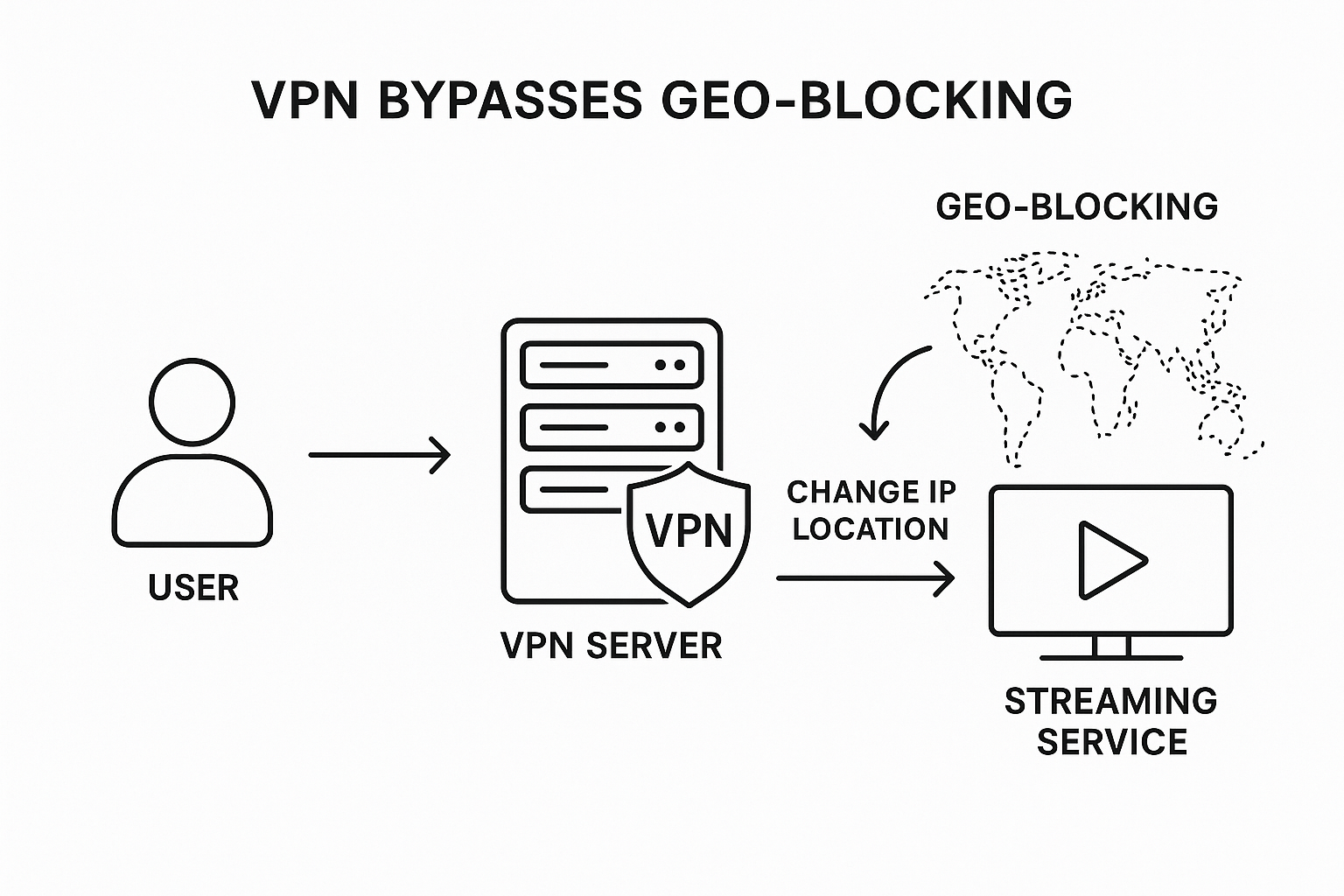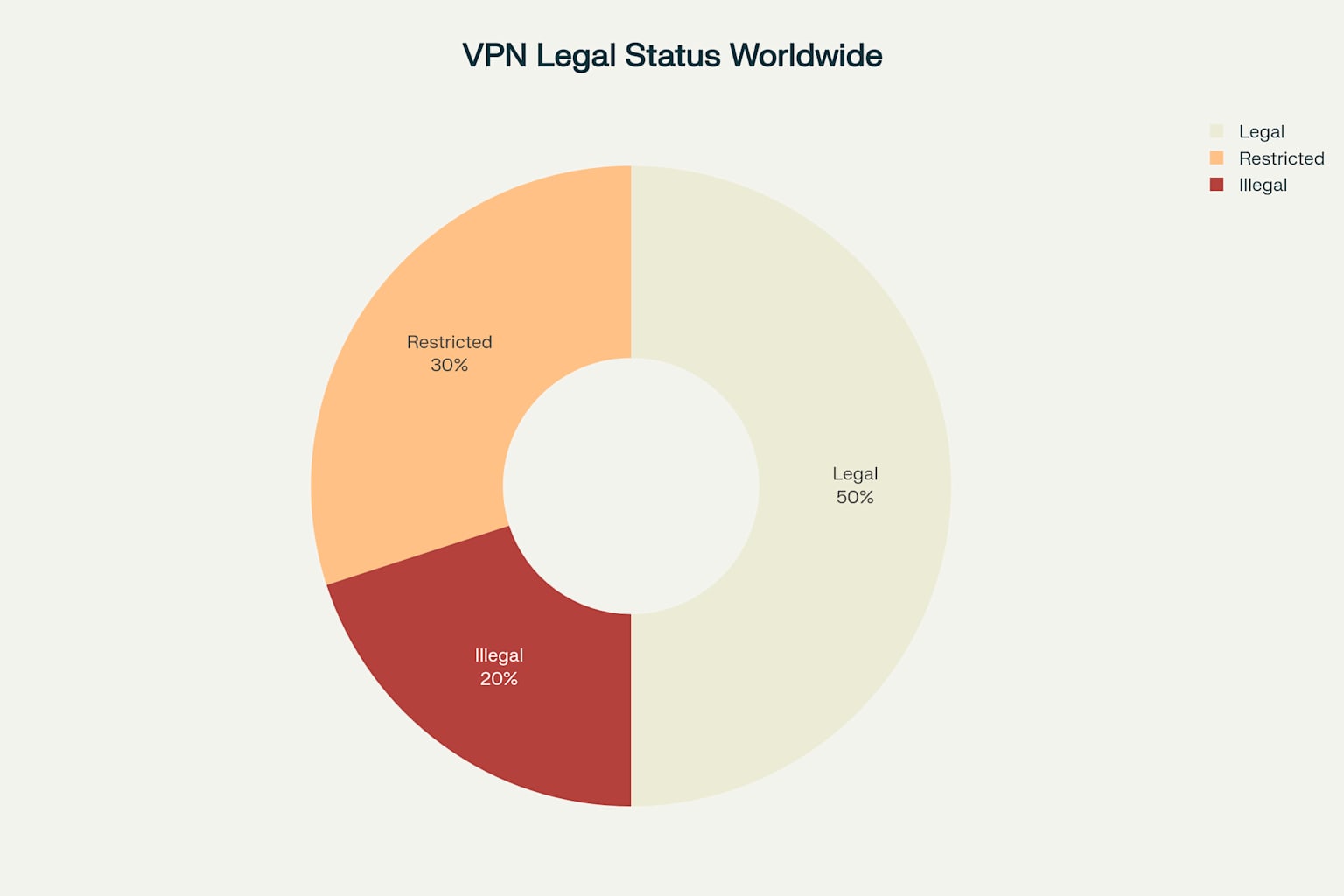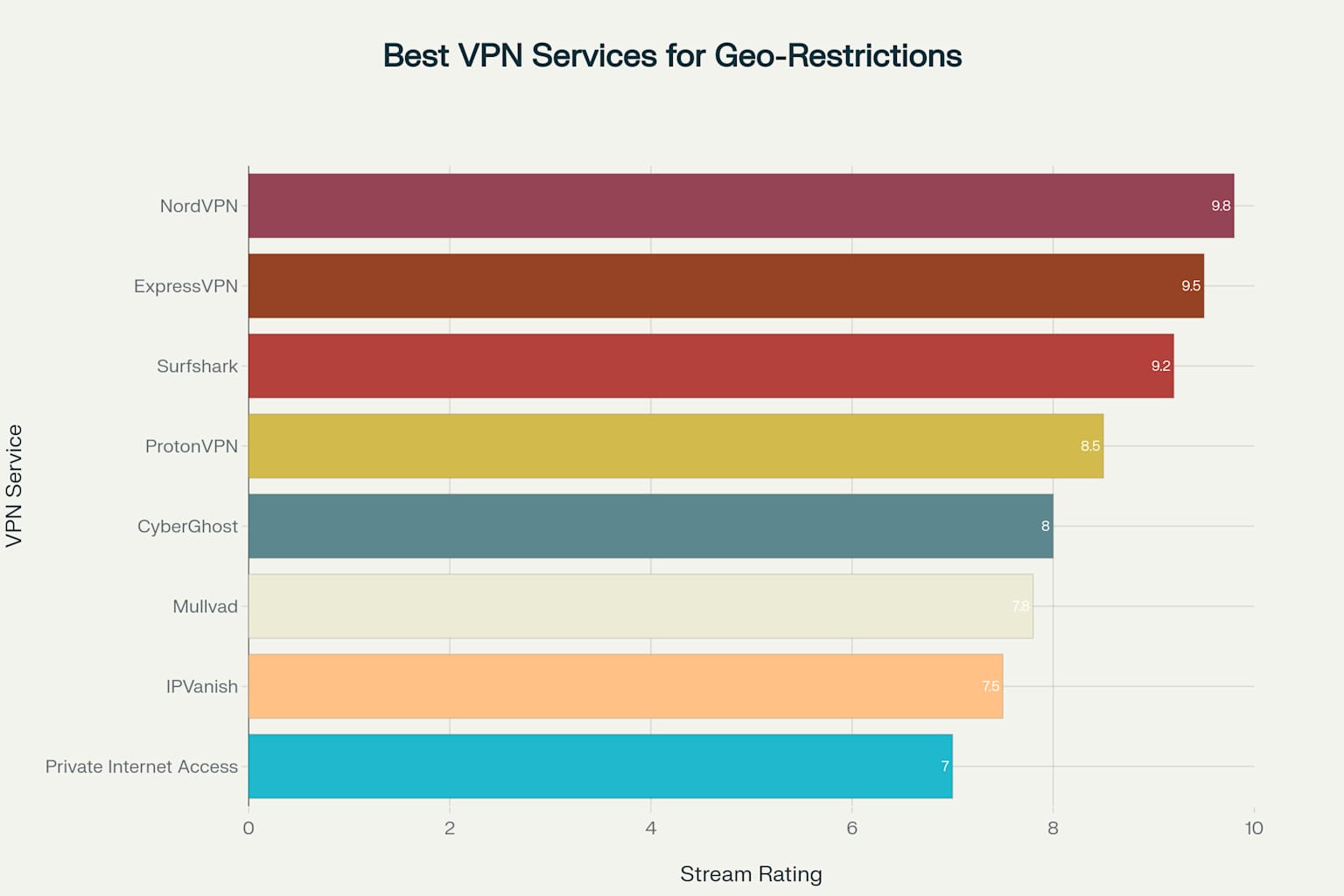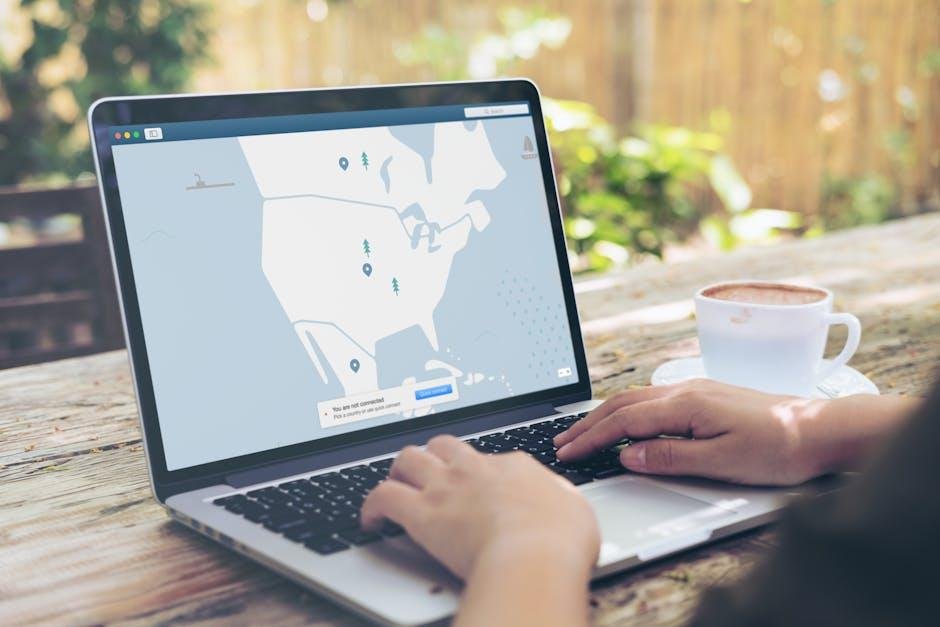Geo-blocking has become one of the most significant barriers to accessing online content in our interconnected world. Virtual Private Networks (VPNs) offer an effective solution for bypassing these geographical restrictions, enabling users to access streaming services, websites, and digital content regardless of their physical location. This comprehensive guide examines the technical mechanisms, legal considerations, and practical implementation strategies for using VPNs to overcome geo-restricted content barriers.
Understanding Geo-Blocking and VPN Technology
The Mechanics of Geo-Blocking
Geo-blocking operates through IP address detection, where streaming services and websites use geolocation databases to identify a user’s location and restrict access accordingly. Streaming platforms implement these restrictions primarily due to licensing agreements that vary by region, requiring them to enforce territorial boundaries for content distribution. These agreements determine where specific movies, shows, and other digital content can be legally accessed, creating artificial scarcity based on geography rather than technical limitations.

How VPNs Circumvent Geographic Restrictions
A VPN creates an encrypted tunnel between your device and a remote server, effectively masking your real IP address and replacing it with one from the server’s location. When you connect to a VPN server in a different country, streaming services perceive your traffic as originating from that location, allowing access to region-specific content libraries. The process involves routing all internet traffic through the VPN server, which acts as an intermediary that encrypts data and provides a new geographical identity.

Current Market Trends and Usage Statistics
The global VPN market has experienced substantial growth, with the industry valued at approximately \$50.9 billion in 2023 and projected to reach \$137.7 billion by 2030, representing a compound annual growth rate of 15.3%. Research indicates that 31% of global internet users now utilize VPN services, with particularly high adoption rates in regions facing internet restrictions. According to recent studies, 46% of users employ VPNs specifically for accessing entertainment content that would otherwise be geo-blocked in their region.
Legal Framework and Global Compliance
VPN Legality Across Jurisdictions
VPN usage legality varies significantly across different countries and regions worldwide. In most democratic nations including the United States, United Kingdom, Canada, Germany, France, Australia, and Japan, VPNs are completely legal for all purposes. However, several countries impose restrictions or outright bans on VPN usage, particularly those with authoritarian governments seeking to control internet access and information flow.

Countries with VPN restrictions include China and Russia, which only permit government-approved VPN services, while nations like North Korea, Belarus, Iran, Iraq, and Turkmenistan have implemented complete bans. Users in restricted countries face potential penalties ranging from fines to imprisonment for unauthorized VPN usage. The European Union and United States have seen legislative developments like GDPR that actually encourage VPN adoption for data protection compliance.
Streaming Service Terms of Service Considerations
While VPN usage itself may be legal, accessing geo-restricted content through VPNs often violates streaming platforms’ terms of service. Netflix, for example, explicitly prohibits the use of VPNs to access content outside a user’s designated region, though violations typically result in access blocking rather than account termination.
Optimal VPN Services for Bypassing Geo-Restrictions
Top-Performing VPN Providers
Based on comprehensive testing and analysis, several VPN providers demonstrate superior performance for bypassing geo-restrictions. NordVPN consistently ranks as the top choice, offering excellent streaming capabilities with a 9.8/10 rating for geo-blocking effectiveness, maintaining over 7,400 servers across 118 countries. ExpressVPN follows closely with a 9.5/10 streaming rating.

Surfshark represents the best value proposition, offering unlimited simultaneous connections and a 9.2/10 streaming effectiveness rating at competitive pricing. ProtonVPN and CyberGhost also provide solid performance, though with somewhat lower streaming ratings.
Performance Metrics and Server Networks
The effectiveness of VPNs for bypassing geo-restrictions depends heavily on server network size, geographical distribution, and connection speeds. Leading providers maintain thousands of servers across dozens of countries. Speed retention is crucial for streaming applications, with top-tier services maintaining 90-95% of baseline internet speeds. Providers combat VPN detection using techniques like dedicated IPs, server obfuscation, and IP cycling.
Technical Protocols and Implementation
VPN Protocol Selection for Optimal Performance
Modern VPN services offer multiple connection protocols. WireGuard has emerged as the preferred protocol for most users, offering excellent speed, security, and efficiency. OpenVPN remains valuable for bypassing firewalls, though it typically uses more system resources. IKEv2/IPSec is ideal for mobile use due to fast reconnection between networks.
Setup and Configuration Best Practices
Proper VPN configuration is essential. Look for kill switch functionality, DNS leak protection, and split tunneling. For geo-unblocking, it’s best to route all traffic through the VPN to avoid any real IP exposure.
Platform-Specific Strategies and Considerations
Netflix and Major Streaming Platforms
Netflix is particularly aggressive in detecting VPN usage, requiring providers to rotate IP addresses frequently and offer dedicated streaming servers.

BBC iPlayer requires UK-based VPN servers and clearing of browser cookies. Hulu also demands US-based servers and has strong detection measures in place.
Regional Streaming Service Access
Different platforms vary in VPN detection strength. Disney+ and Prime Video are easier to unblock. Sports platforms often use the most advanced geo-blocking systems. Asian services like Viki and iQiyi may block VPNs entirely.
Advanced Techniques and Troubleshooting
Overcoming Detection and Blocking
Try switching to different servers in the same region, clearing browser cache/cookies, or using another protocol if your VPN is blocked. Use incognito mode or clear cookies frequently to prevent cached location data from revealing your true location.
Performance Optimization Strategies
Select servers close to your physical location for better speed. Some VPNs use load balancing to auto-select the best server. Router-level VPN setup is ideal for covering all devices but requires advanced setup.
Alternative Solutions and Emerging Technologies
Smart DNS and Proxy Services
Smart DNS services offer fast, unencrypted access to geo-restricted content but lack the security of VPNs. Residential proxies offer stronger access success but are more expensive and may raise privacy concerns.
Future Developments and Industry Trends
VPN providers are integrating AI and quantum-resistant encryption to combat evolving detection methods. Streaming platforms are using machine learning for behavioral detection. Browser-integrated VPNs and mobile-first tools are shaping future VPN usage.
Conclusion
VPNs remain the most effective tool for bypassing geo-restrictions. Success requires choosing a reliable VPN, proper setup, and staying updated with changing detection tactics. While VPN usage is legal in most countries, users should always review streaming service terms of service. As both VPNs and streaming platforms advance, premium providers with dedicated geo-unblocking resources will continue to offer the most consistent access.




